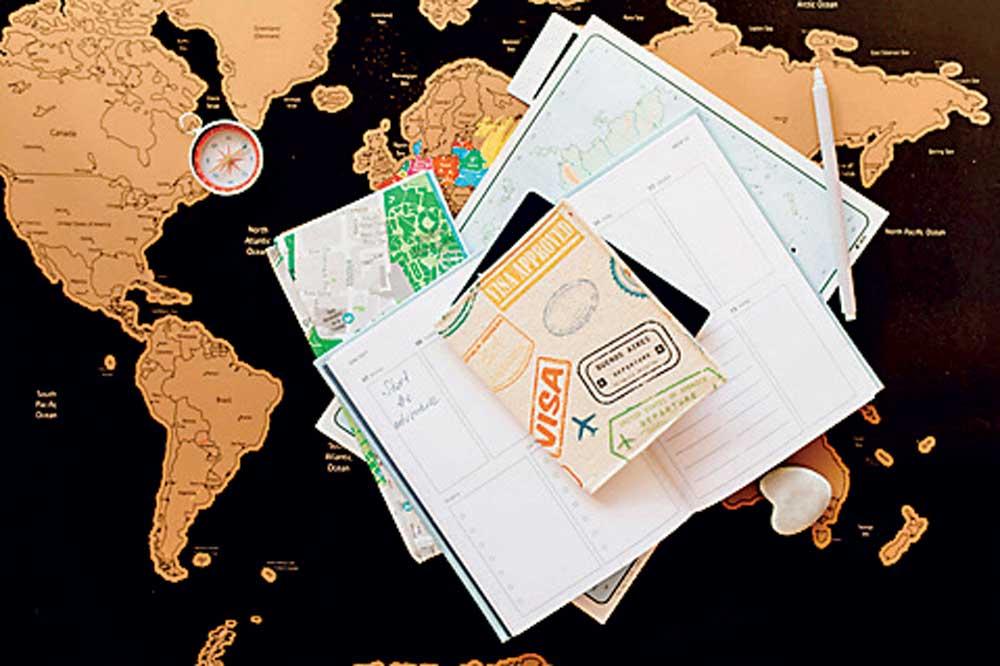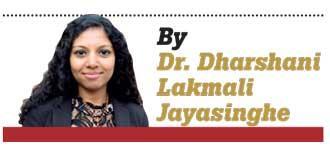Reply To:
Name - Reply Comment

 The issuance of visas to enter Sri Lanka became a much-discussed topic in May 2024 after a Sri Lankan national challenged the way in which his foreign wife’s entry visa was handled at the Bandaranaike International Airport. The concerns of foreign nationals running visa counters at the Sri Lankan border, the procurement process by which VFS Global was selected to implement the eVisa program, and increased costs of visas to Sri Lanka were widely debated in media after this incident. However, what need similar scrutiny are the challenges that Sri Lankan citizens undergo when they apply for visas, particularly the absence of dignity during the visa process.
The issuance of visas to enter Sri Lanka became a much-discussed topic in May 2024 after a Sri Lankan national challenged the way in which his foreign wife’s entry visa was handled at the Bandaranaike International Airport. The concerns of foreign nationals running visa counters at the Sri Lankan border, the procurement process by which VFS Global was selected to implement the eVisa program, and increased costs of visas to Sri Lanka were widely debated in media after this incident. However, what need similar scrutiny are the challenges that Sri Lankan citizens undergo when they apply for visas, particularly the absence of dignity during the visa process.
What I consider as one of the most pernicious problems of the visa system is the inherent indignity that a lot of Sri Lankans experience when applying for visas. Dignity was the United Nation’s theme for 2020, the year that the United Nations celebrated its 75th year. The “Preamble” to the “Universal Declaration of Human Rights” begins with “Whereas recognition of the inherent dignity and of the equal and inalienable rights of all members of the human family is the foundation of freedom, justice and peace in the world.” Yet, a lot of visa applicants find themselves treated with indignity and disrespect during the process of applying for visas, which is a malevolent aspect of the visa process that has existed since its popularization during World War II when it was used to primarily impede the mobility of refugees fleeing the Holocaust.
As I’ve discussed elsewhere, writers such as German author Anna Seghers have portrayed how visa applicants were criminalized and treated with extreme indignity during World War II. In her novel Transit, Seghers writes of applicants standing in long lines outside embassies in inclement weather for hours, of applicants thronging at the gate waiting to submit their documents, of the incredibly strict entry requirements that made it near impossible to successfully obtain visas, and of the abuse of power by security guards and consular officers.
Films focusing on Sri Lankan immigrant stories such as Machan (2008) by Uberto Pasolini and Mille Soya (2004) by Boodee Keerthisena also shed light on the inhumanity of the process. In the novel American Visa, Bolivian author Juan de Recacoechea describes how some applicants experience anxiety and panic attacks at the embassy due to the hostile environment they find themselves in. Several individuals interviewed for the “In Transit” oral history project that I completed at Stanford University expressed having gone through indignity and harassment while obtaining their visas due to their nationality. I argue elsewhere how the indignities of the visa process have now become “fossilized,” normalized, and formalized through visa policies. Visas can be understood as a handmaiden of neocolonialism that arbitrarily controls the mobility of citizens of former colonies.
Seghers’s novel was first published in 1944 and the plot primarily takes place in France. But when one reads her novel, one might think that she is writing about a Sri Lankan applying for a visa in 2024 in Colombo, where applicants line up in the heat and dust and wait indefinitely to enter an embassy or to pick up their passports. Appointments are provided, but the times are rarely respected. The security guards throw their weight around, drunk with the power they represent. Each applicant’s personal details pertaining to finances, medical records, background, intent of travel etc. are discussed publicly within earshot of all other applicants to the visible discomfort of some applicants. Everyone present also knows whether one’s visa was granted or denied. Officers who look through the documents do not hesitate to publicly shame the applicants for not knowing English or for not being able to complete forms accurately. One is convinced that affording people dignity in trying to move across international borders is not universal, but a privilege enjoyed by a few.
The Kafkaesque visa system is designed to oppress applicants who have low financial resources and social capital. Once, at one of the embassies in Colombo, I witnessed how a Sri Lankan athlete who had represented the country at the Olympics was publicly shamed and shouted at for a mistake in her application. The document processing officer waved her application above his head in a dramatic fashion, shamed her for not knowing English and for making a mistake in her application, and proceeded to shout at her while all of us standing in line looked on bewildered. This was not an isolated incident either.
High visa fees, the burdensome process of putting together supporting documents, the Kafkaesque bureaucracy, the complex application process, and the need to be proficient in English generate a system of “natural selection” that prevents a lot of people from countries like Sri Lanka from applying to visas to begin with. Many from the Global North, however, can cross international borders without having to apply for visas and without needing to trade in their dignity to gain permission to travel. Even when they do have to apply for a visa, the process is usually hassle-free. For instance, for a standard tourist visa to Sri Lanka, the only documents required of a foreigner are the passport bio page and a photo, which can be submitted online.
When I met the athlete outside the embassy, she made a poignant observation about the behavior of the visa officers. “They treat us like dogs in our own country,” she said. While Sri Lankans are rightly troubled about how the government issues visas to those trying to enter the country, we must also be concerned about how we are treated by the various processing structures when we apply for visas to travel aboard. It should be possible for people to travel without dignity being part of the price of a visa.
Dr. Dharshani Lakmali Jayasinghe is an Assistant Professor of Anglophone and World Literatures at Central Connecticut State University (CCSU). Dr. Jayasinghe is also a Global Academic Fellow at Verité Research. She received her Ph.D. in Comparative Literature from Stanford University, and was a Visiting Ph.D. Scholar at the Institute for Comparative Literature and Society (ICLS) at Columbia University.